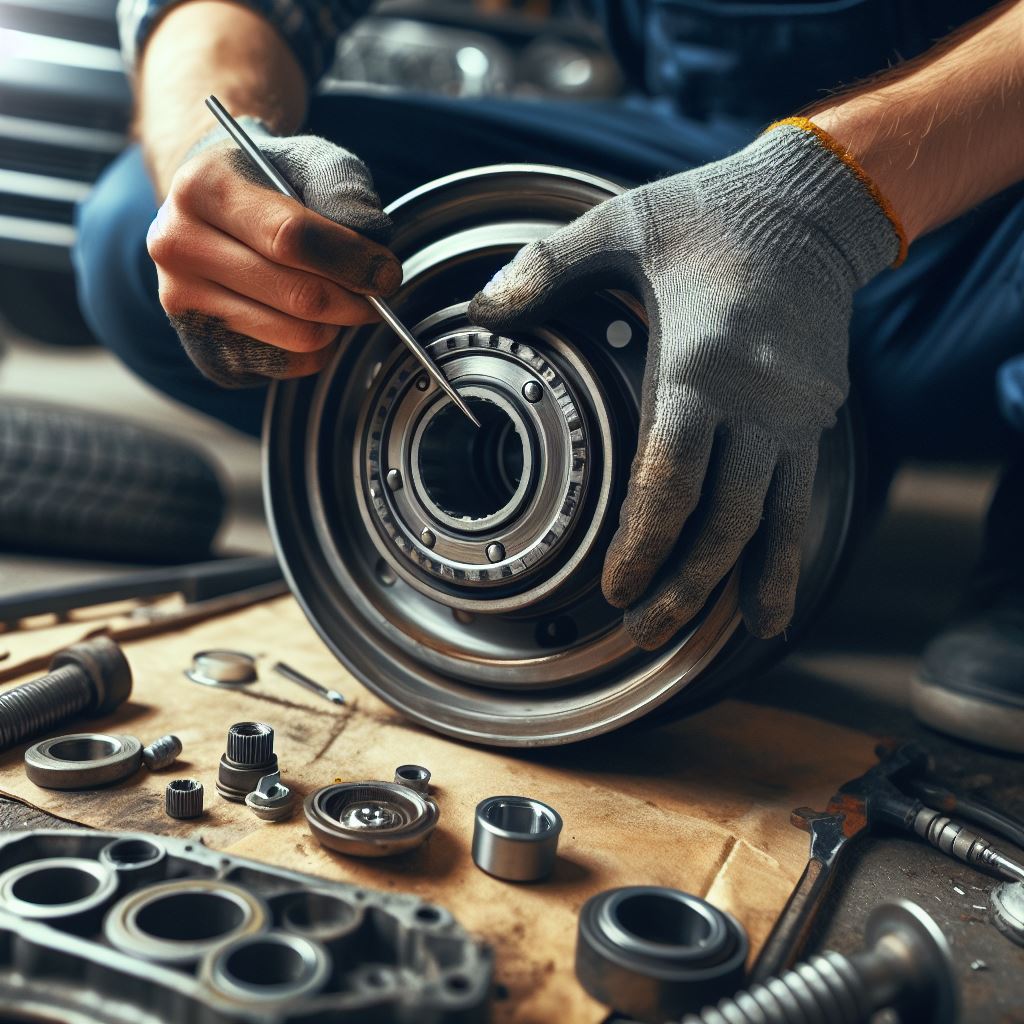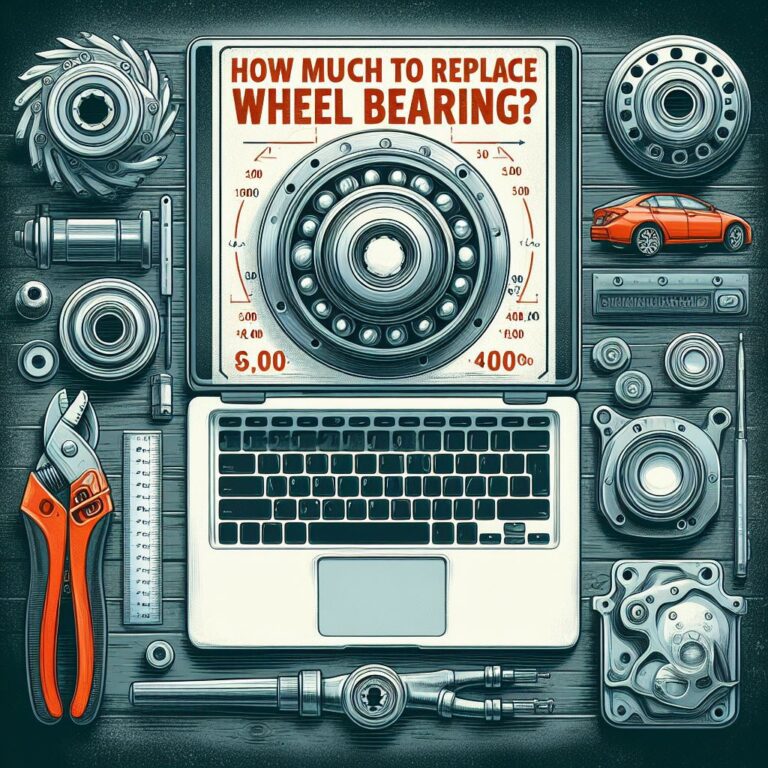Ensuring the smooth operation of your vehicle relies heavily on well-maintained wheel bearings because they are an essential component of a vehicle’s steering, braking, and suspension systems.
While the wheel bearing is built to last long, it may experience wear and tear when it frequently comes in contact with sand, water, road salts, and mud. If this debris gets into the bearing seals, it contaminates the grease, causing increased friction and wear.
Also, driving into potholes, curbs, and bumps at a very high speed can increase the chance of damaging the wheel bearing.
However, it’s important to note that replacing a damaged wheel bearing isn’t something newbies can do since it plays a vital role in the transmission.
In this article, we will explore the signs of a failing wheel bearing and provide a realistic estimate of the cost involved in replacement.

What Are Signs of Bad Wheel Bearing?
Unusual Noises
One of the most common indicators of a failing wheel bearing is the emergence of strange noises.
Drivers may notice a grinding, growling, or humming sound from the affected wheel. This noise typically becomes more pronounced as the vehicle gains speed and can be a clear signal that the wheel bearing requires attention.
Vibrating Steering Wheel
If you feel unusual vibrations while driving, especially at higher speeds, it could be a sign that the wheel bearing is damaged. These vibrations often intensify as the bearing wear progresses.
Uneven Tire Wear
A bad wheel bearing can lead to uneven tire wear. Inspect your tires for irregular patterns or excessive wear on one side.
Wobbling/Pulling
You’ll notice that the wheels wobble or pull to one side during acceleration if the wheel bearing is bad.
Unable to Maintain a straight line
If you notice difficulty maintaining a straight line while driving, it’s essential to have your wheel bearings examined to ensure the stability and safety of your vehicle.
Reduced steering feedback
You’ll also notice that the steering wheel becomes less responsive if the wheel bearing goes bad.
ALSO, READ > How Long Can You Drive on a Bad Wheel Bearing
How Much Should a Wheel Bearing Job Cost?
When it comes to estimating the cost of wheel bearing replacement, several factors come into play:
Type of Vehicle:
The make and model of your vehicle significantly influence the cost. Luxury or high-performance cars often require specialized parts, potentially resulting in a higher expense than standard models.
Labor Costs:
Labor costs vary among mechanics and auto repair shops. To obtain an accurate estimate, it’s advisable to gather quotes from different service providers, ensuring a competitive price for the replacement.
Quality of Parts:
Opting for high-quality, OEM, or premium aftermarket parts may increase costs. However, the investment in quality components pays off in durability and long-lasting performance.
Additional Repairs:
Addressing secondary issues like brake damage or alignment problems during the wheel bearing replacement can add to the total cost. A thorough inspection is essential to identify and resolve any associated problems.
V.Autobasics Realistic Estimate:
On average, the cost of wheel bearing replacement can range from $100 to $400 per wheel, including parts and labor. Remember that luxury or high-performance vehicles may incur higher expenses due to the need for specialized components.
FAQs
Can you drive a car with a bad wheel bearing?
It’s risky. Continued driving may lead to more damage. Have it inspected and replaced promptly for safety.
What are the signs of bad wheel bearing?
Listen for grinding noises, feel vibrations, notice uneven tire wear, or experience wobbling while driving.
How long does wheel bearing last?
Typically, they last around 85,000-100,000 miles. Regular maintenance and prompt repairs can extend their lifespan.
Can wheel bearing be repaired?
Yes, they can be repaired, but replacement is necessary to ensure optimal vehicle performance.
What causes wheel bearings to go bad?
Factors include lack of lubrication, water exposure, high mileage, and heavy loads. Regular maintenance helps prevent issues.
What does lousy bearing sound like?
A bad wheel bearing may produce grinding, growling, or humming noises, especially when driving at higher speeds.
As an Amazon Service LLC Program Associate, V. Auto Basics earns from qualifying purchases. See Our Affiliate disclaimer.
